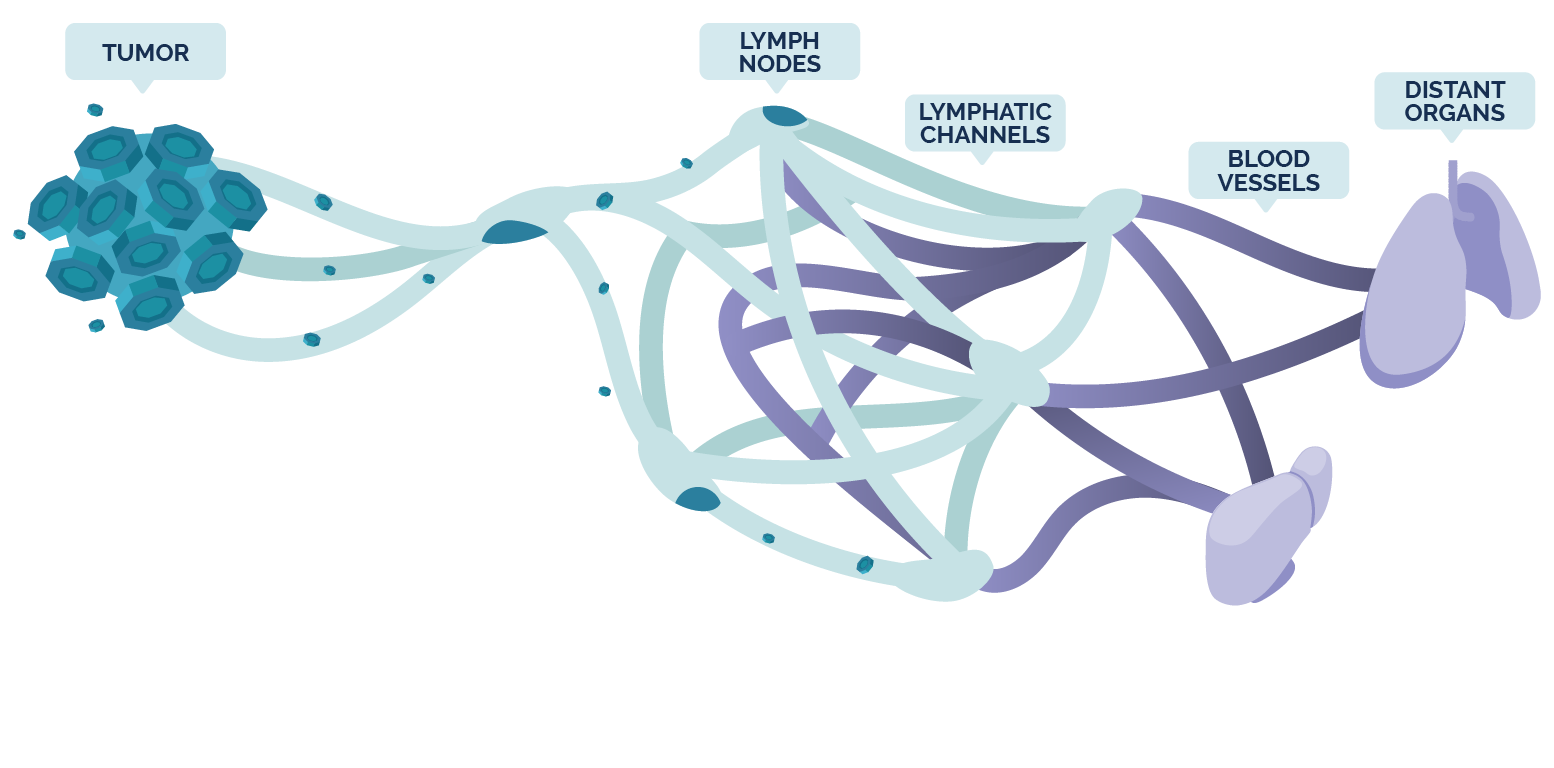For the first time, non-invasive liquid biopsy techniques can unlock lymphatic insights to aid in post-operative treatment decisions.
The lymphatic system is the most common means of metastasis in over 90% of cancer cases. Lymphatic metastasis begins in the nodes nearest the tumor where cancer cells can grow and eventually spread via the circulatory system.
Primary means of
metastasis by cancer type

Understanding local risk requires a local analyte. Lymph-rich surgical drain fluid is the most proximal biofluid to the recently resected tumor, enabling assessment of recurrence risk before cancer spreads.
Droplet sequences the fluid that drains from an integrated network of tissue, nodes, and lymphatic channels in the locoregional area.
Droplet’s assay can detect molecular-level disease, in-transit metastasis, and positive nodes that may have been missed during surgery or pathological review.
Click to view
Before surgeryClick to view
After surgeryClick to view
Before surgery
Click to view
After surgery
Droplet delivers highly sensitive results early enough to aid in treatment decisions during the curative timeframe.
Blood-based ctDNA markers of molecular residual disease can identify recurrence but rarely in time to impact treatment with curative intent or with the sensitivity necessary to detect locoregional spread.
Lymph liquid biopsy takes place immediately after surgery, allowing care teams to assess recurrence risk at the most consequential time point and design adjuvant treatment plans for every individual patient.
